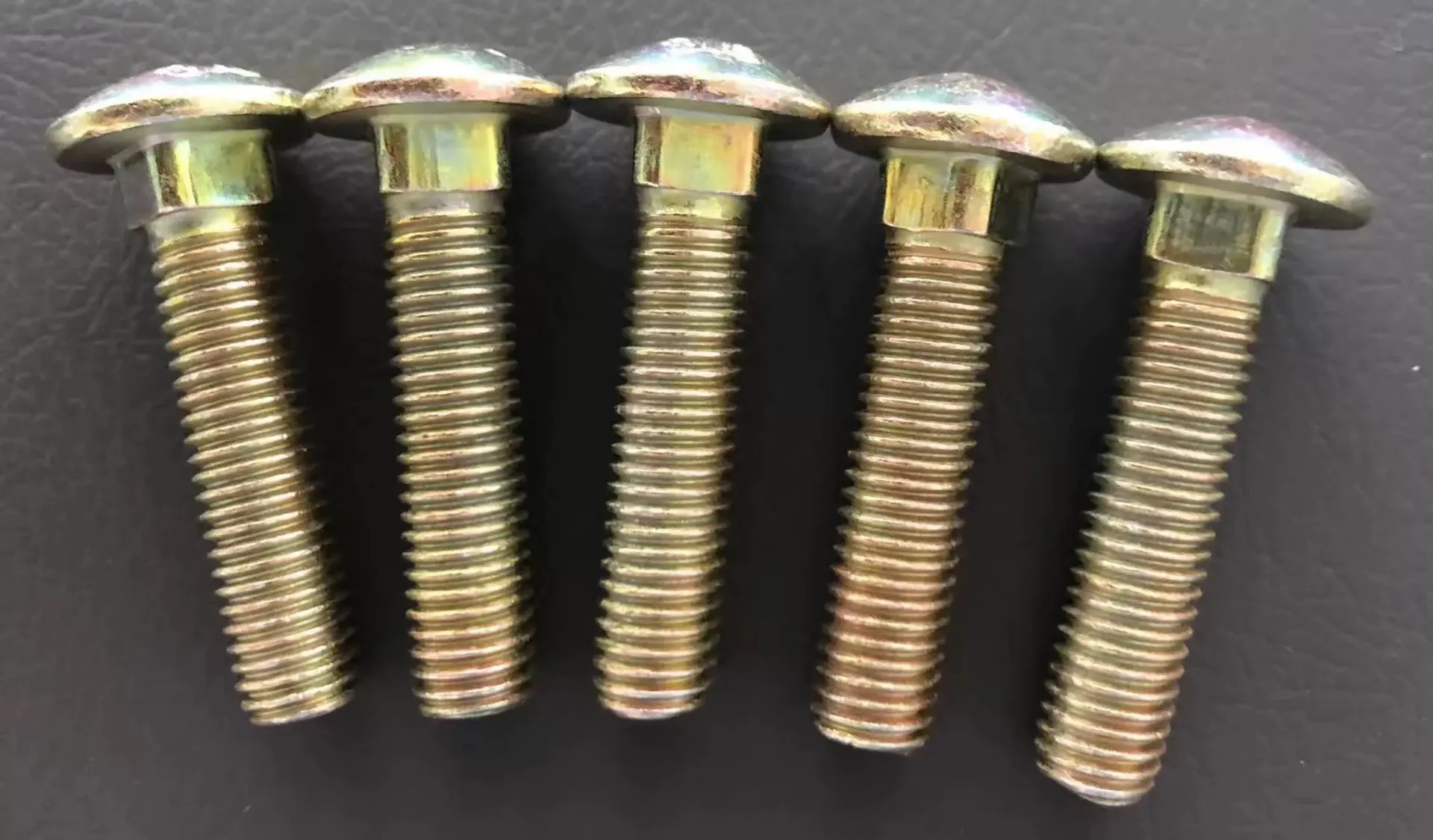

4mm Flanged Nut for Secure Fastening Applications and Enhanced Performance in Various Projects
Nov . 10, 2024 06:10 Back to list
4mm Flanged Nut for Secure Fastening Applications and Enhanced Performance in Various Projects
Understanding the 4mm Flange Nut A Versatile Fastening Solution
When it comes to construction and mechanical assembly, the importance of reliable fastening components cannot be overstated. Among the numerous fastening solutions available, the 4mm flange nut stands out due to its unique design, versatility, and functionality. This article aims to provide an in-depth understanding of the 4mm flange nut, exploring its features, applications, advantages, and maintenance practices.
What is a 4mm Flange Nut?
A 4mm flange nut is a type of fastener characterized by its circular base and a prominent flange that increases the surface area in contact with the material being fastened. With a standard inner diameter of 4mm, it is designed to fit onto bolts of the same size, providing a secure grip and preventing loosening over time. The flange serves to distribute the load more evenly, minimizing the risk of damage to the surface material and enhancing the overall stability of the assembly.
Features of the 4mm Flange Nut
The distinctive features of the 4mm flange nut include
1. Flanged Base The flange at the bottom of the nut allows for improved load distribution. This is particularly beneficial when working with softer materials, such as plastic or thin metal sheets, where traditional nuts might cause deformation.
2. Compact Size With a 4mm inner diameter, these nuts are lightweight and compact, making them an ideal choice for applications where space is limited.
3. Material Variety Flange nuts can be made from various materials, including steel, stainless steel, brass, and nylon. Each material offers different properties such as corrosion resistance, strength, and thermal stability, allowing for tailored solutions to specific project requirements.
4. Thread Type The threads on a flange nut may vary depending on the application (fine or coarse). Ensuring that the thread type matches that of the corresponding bolt is crucial for achieving optimal performance.
Applications of the 4mm Flange Nut
The 4mm flange nut is used across multiple industries, including
- Electronics Commonly found in electronic circuits and assemblies due to their small size and lightweight nature. They can securely fasten components while minimizing the risk of electrical interference.
- Automotive In vehicles, flange nuts are used for securing various parts, such as exhaust systems, engines, and chassis components, where vibration or movement could otherwise loosen standard nuts.
4mm flange nut

- Aerospace Aerospace applications require parts to have high strength and low weight. Flange nuts meet these criteria, ensuring that assemblies remain secure even under extreme conditions.
- General Construction These nuts are widely used in structural applications, providing secure fastening solutions for beams, frames, and other elements.
Advantages of Using 4mm Flange Nuts
Utilizing 4mm flange nuts in various applications comes with several advantages
- Enhanced Stability The flange helps stabilize the assembly and prevents wobbling or shifting over time, a critical factor in long-term performance.
- Ease of Installation These nuts are easy to install and tighten, which can streamline the assembly process significantly, particularly in large-scale projects.
- Reduced Risk of Loosening The larger surface area provided by the flange helps to counteract vibrations that can lead to loosening over time, making them a reliable choice for dynamic environments.
- Cost-Effective Given their durability and strength, flange nuts often lead to lower maintenance costs and reduced need for frequent replacements.
Maintenance and Care
While 4mm flange nuts are designed for durability, proper maintenance practices can extend their lifespan further. Here are some recommended maintenance tips
- Regular Inspections Periodic checks for signs of wear or corrosion can help identify potential failures before they occur.
- Proper Tightening Ensure that nuts are tightened to the manufacturer's specifications to prevent damage to both the nut and the material being fastened.
- Clean Environment Keeping the assembly area clean can help prevent debris from interfering with the fastening integrity.
In conclusion, the 4mm flange nut is an essential component in various industries, providing versatility, reliability, and robustness. Its unique design and myriad applications make it a staple for engineers and builders alike, ensuring that assemblies are both secure and efficient. By understanding this fastening solution, professionals can make informed decisions that enhance their projects' performance and longevity.
Latest news
-
High-Strength Hot-Dip Galvanized Bolts-Hebei Longze|Corrosion Resistance&High Strength
NewsJul.30,2025
-
Hot Dip Galvanized Bolts-Hebei Longze|Corrosion Resistance&High Strength
NewsJul.30,2025
-
Hot Dip Galvanized Bolts - Hebei Longze | Corrosion Resistance, High Strength
NewsJul.30,2025
-
High-Strength Hot Dip Galvanized Bolts-Hebei Longze|Corrosion Resistance, Grade 8.8
NewsJul.30,2025
-
Hot Dip Galvanized Bolts-Hebei Longze|Corrosion Resistance,High Strength
NewsJul.29,2025
-
High-Strength Hot Dip Galvanized Bolts - Hebei Longze Metal Products Manufacturing Co., Ltd.|corrosion resistance&high strength
NewsJul.29,2025

